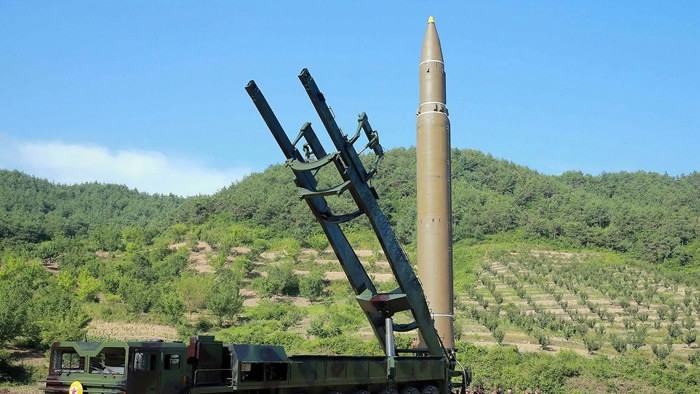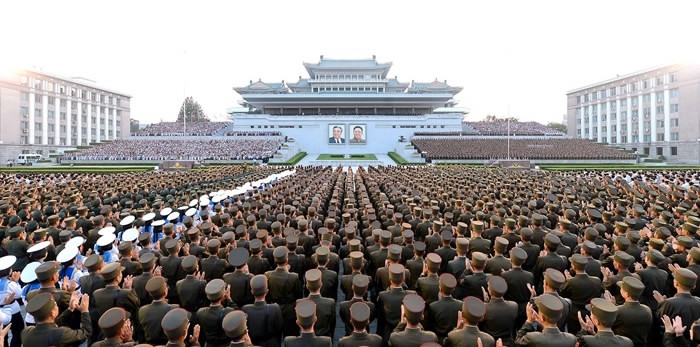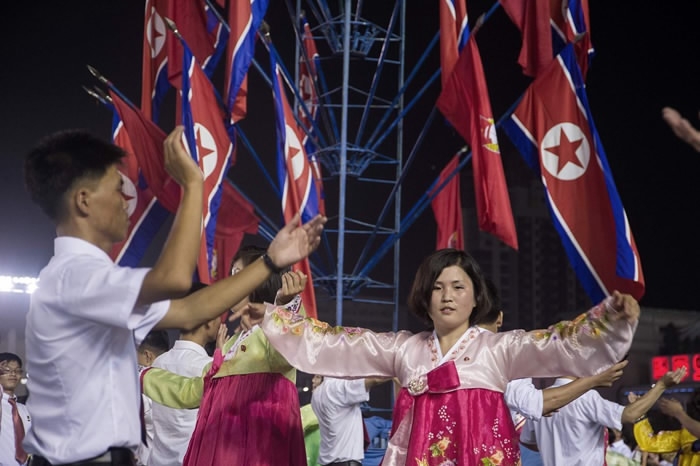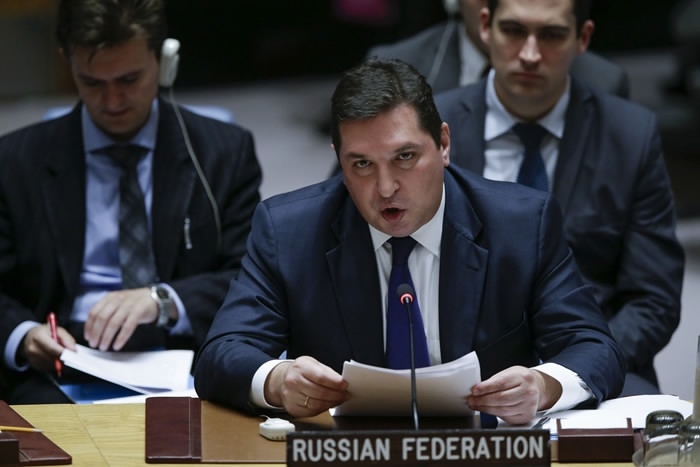
Politics
11:13, 07-Jul-2017
Russia blocks US-drafted UN statement on DPRK

Russia made an objection on Thursday to a United Nations Security Council condemnation of DPRK's latest rocket launch because the US-drafted statement labeled it as an intercontinental ballistic missile (ICBM), to which Moscow disagrees.
The Russian mission to the United Nations said it had proposed amendments to the US draft. It was not immediately clear if the United States would continue to negotiate with Russia in an effort to reach a council consensus on a statement.
Security Council statements have to be agreed by all 15 members.

Army personnel and people gather at Kim Il Sung Square in Pyongyang, DPRK to celebrate the successful test-launch of "intercontinental ballistic rocket" Hwasong-14, July 6, 2017. /VCG Photo
Army personnel and people gather at Kim Il Sung Square in Pyongyang, DPRK to celebrate the successful test-launch of "intercontinental ballistic rocket" Hwasong-14, July 6, 2017. /VCG Photo
Moscow believed the DPRK fired an intermediate range ballistic missile on Tuesday. The DPRK said it tested an ICBM and the United States said that was likely true.
'Not an ICBM'
"The rationale is that based on our (Ministry of Defense's) assessment we cannot confirm that the missile can be classified as an ICBM," Russia's UN mission said in an email to its Security Council colleagues.
"Therefore we are not in a position to agree to this classification on behalf of the whole council since there is no consensus on this issue," the email said.
The Russian mission to the United Nations insisted it had not blocked the statement but rather suggested that the United States "make appropriate amendments to it."
The United States had circulated the statement for adoption by the 15-member council after announcing plans for a new sanctions resolution.

Celebrations of the successful test-launch of "intercontinental ballistic rocket" Hwasong-14 in Pyongyang, DPRK, July 6, 2017. /VCG Photo
Celebrations of the successful test-launch of "intercontinental ballistic rocket" Hwasong-14 in Pyongyang, DPRK, July 6, 2017. /VCG Photo
The draft statement recalled that the council had agreed to take "further significant measures" in the event of another nuclear test or missile launch and that the top UN body would "begin to work immediately on such measures."
The draft statement included a strong condemnation of the launch, setting the stage for a draft resolution on tougher sanctions that the United States said it planned to present in the coming days.
'Sanctions will not resolve the issue'
Addressing an emergency council meeting on Wednesday, Russian Deputy Ambassador Vladimir Safronkov said Moscow opposed the move, arguing that "sanctions will not resolve the issue."
"Any attempts to justify a military solution are inadmissible and will lead to unpredictable consequences for the region," warned Safronkov.
US Ambassador Nikki Haley called the launch "a clear and sharp military escalation" and warned that Washington was ready to use military force "but we prefer not to have to go in that direction."

Russian Deputy Ambassador to the UN Vladimir Safronkov speaks during an emergency Security Council meeting in New York, US, July 5, 2017. /VCG Photo
Russian Deputy Ambassador to the UN Vladimir Safronkov speaks during an emergency Security Council meeting in New York, US, July 5, 2017. /VCG Photo
The launch, described by DPRK leader Kim Jong Un as a "gift" to Americans as they prepared to celebrate Independence Day on July 4, marked a milestone in Pyongyang's decades-long drive for the capability to threaten the US mainland with a nuclear strike.
(Source: Reuters, AFP)
11001km
Related stories:

SITEMAP
Copyright © 2018 CGTN. Beijing ICP prepared NO.16065310-3
Copyright © 2018 CGTN. Beijing ICP prepared NO.16065310-3